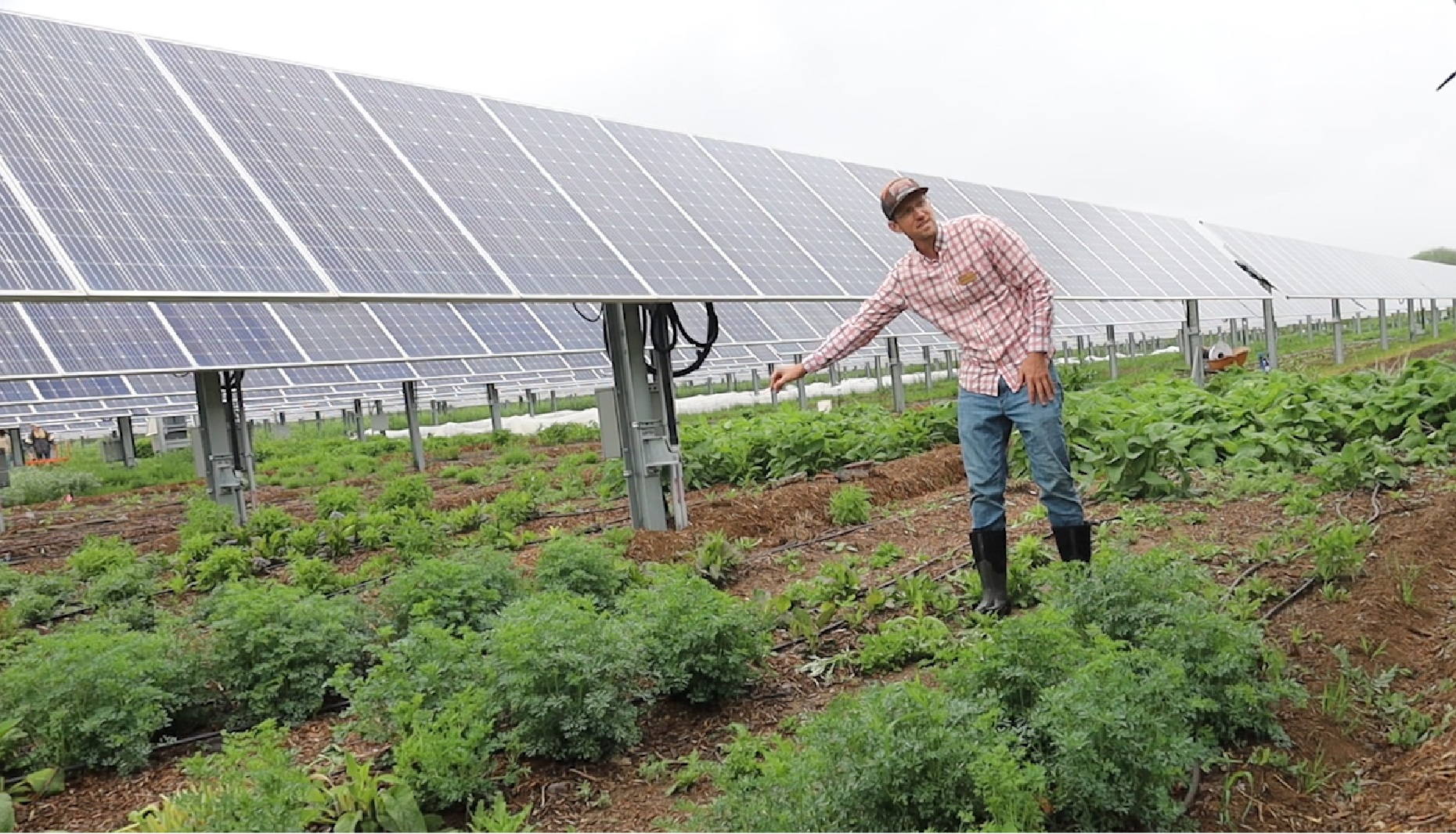Grazing, growing, and making electricity: Agrivoltaics Demo Day
To many, the image of solar panels evokes the singular idea of generating electricity from the sun's energy.
But it’s a lot more, as 40 producers, land managers, researchers, and community members learned at the Front Range Agrivoltaics Demo Day at Jack’s Solar Garden in Longmont on June 10.
Hosted by Larimer County CSU Extension and AgriSolar Consulting, Solar Grazing and Growing: Agrivoltaics Demo Day demonstrated how solar energy generation and agriculture can coexist to benefit efficient land use, food systems, and clean energy use.
Just what is agrivoltaics? It’s the practice of using the same land area for both solar energy production and agriculture. In one use, instead of having solar panels close to the ground, they’re raised upwards so that the area underneath the panels can be used for crops, livestock, or other agricultural activities growers wish to use them for. Another use is called an inter-row system, where solar panels are placed between crop rows, with space to allow agricultural machinery to pass through. There are also combinations of these two systems.
Agrivoltaics is gaining attention across the West as an option to meet food and energy needs while maximizing land efficiency. Those attending the demo day witnessed the innovation of this new approach at Jack's Solar Garden Longmont, a national leader in dual-use solar research and education.
One of those attending the event was asked why they were interested in exploring the technical, environmental, and economic considerations of agrivoltaics systems, saying they wanted “To learn more from solar developers, farmers, and other related professionals what local government barriers and supports there are for agrivoltaics in practice, visit Jack’s Solar Garden for the first time, and network with other ag professionals.”
The event included live demonstrations and panel discussions exploring the technical, environmental, and economic considerations of agrivoltaic systems. Panelists shared lessons learned from early projects and tips for navigating land-use and partnership models.
Solar Grazing and Growing was funded in part by the Colorado Department of Agriculture and a mini-grant from the USDA NIFA Western Sustainable Agriculture Research and Education Professional Development Program at Colorado State University. Partners and speakers included representatives from AgriSolar Consulting, Sprout City Farms, Colorado Department of Agriculture, the Department of Energy InSPIRE project, and Jack’s Solar Garden.

